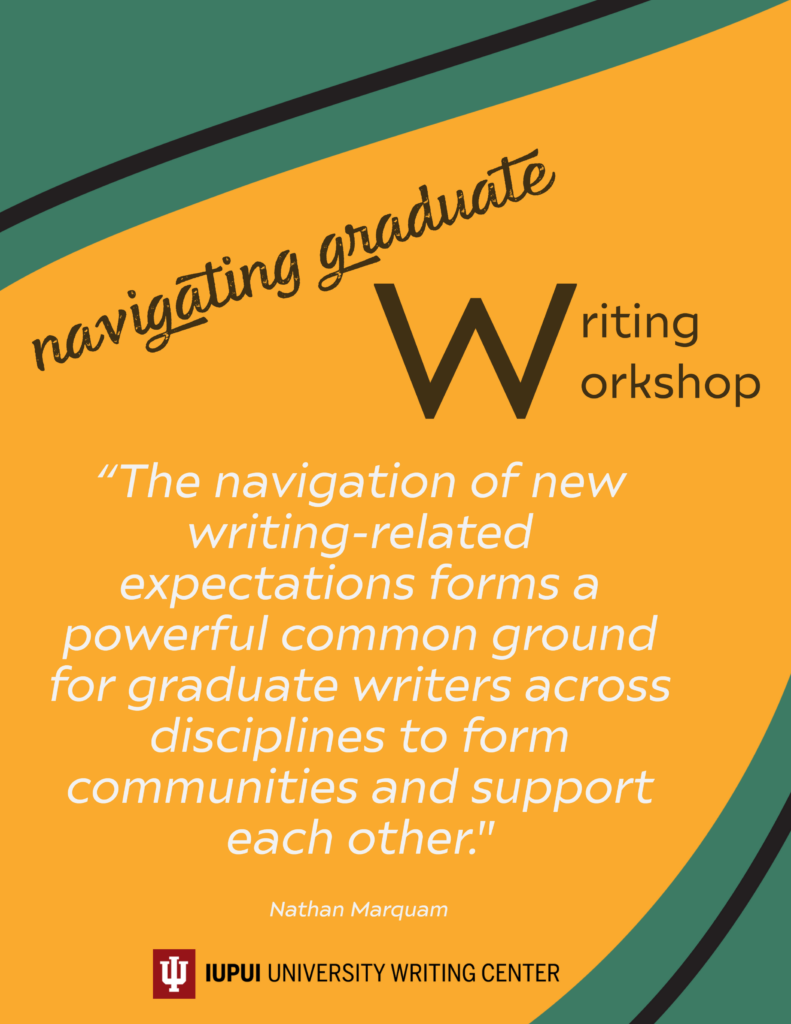by Nathan Marquam

In the four years I’ve worked in the writing center, I’ve noticed that no single label used to describe a particular kind of writing (or writer) tells me everything I need to know about what kind of support is needed. This is especially true with graduate writers. The expectations of what it means to write “like a graduate student” shift between fields, genres, contexts, and even classrooms. However, there is one common thread in all of these variations of experience: graduate writers are learning to make the leap from being consumers of knowledge to using their writing to produce knowledge. This expectation of knowledge production usually brings new genre and field-specific requirements with it, as well as the possibility of a thesis or dissertation-length project. The navigation of new writing-related expectations forms a powerful common ground for graduate writers across disciplines to form communities and support each other.
Enter the Navigating Graduate Writing workshop! This is our second semester offering this program. It consists of two sessions: Managing Time and Academic Relations and Writing Processes and Strategies for Academic Writing. Writers are welcome to come to one or both of these sessions. The first session focuses on the big-picture planning that surrounds graduate writing: degree mapping, juggling busy schedules, and selecting/working with a thesis or dissertation committee, among many other things. The second session asks participants to do a deep dive into their individual writing processes and share strategies for support in different areas of the writing process. The workshop changes a little bit every time we give it; what we focus on most is in large part shaped by the concerns brought up by the graduate students who attend each time.
This workshop is designed to negotiate a balance between structure (making sure that we touch on all the different concerns that graduate writers might have) and flexibility (allowing the attendees to guide the conversation). We know that some portions of the workshop will be differently meaningful to different people, and that’s okay– writers who are more comfortable in certain areas can support their peers, and in turn, receive support from their peers in other areas. Having writers with different orientations toward writing and research attend means that everyone benefits from a wide variety of perspectives. For example, a writer who just finished their undergraduate education, still immersed in the citation practices and genre expectations placed on writing in their field, might be unsure about the process of assembling a thesis committee or writing a longer form project. They might find support from a graduate student who has written longer-form pieces before, but is less familiar with current citation practices and technology.
We are running the Navigating Graduate Writing workshop twice more this semester– on Match 4th and April 11th. You can sign up for session 1 and 2 separately; you can choose to attend one but not the other, or if four hours in Zoom in one day feels like too much for you, you can do them on separate days. You can find the Navigating Graduate Writing sign-up here. We hope to see you there!

